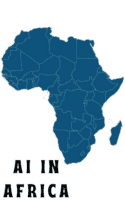Artificial intelligence has grown immensely popular in the last few years, heralded as both the threat to our humanity and the answer to our most basic problems. But is it truly here to solve our issues, or is the hype clouding our judgement? Narratives surrounding this technology are threefold.
Firstly, AI is posed as a race that all countries must participate in unless they wish to miss the fourth industrial revolution.
Secondly, certain people propose that this tool can automate our most laborious, tedious tasks. For example, firms increasingly use AI to scan through CVs and pick the best candidates during hiring processes. AI has also been used in policing, trying to recognise faces and search databases for security threats. In some cases, AI has also been used in healthcare, offering diagnoses for patients and making recommendations on medical care.
But for all of these reasons, the third narrative is one of doom and gloom. This narrative asks, ‘Is AI sufficient to replace public reason and human decision-making?’
The answer is no. Without human intervention, the robots are essentially set to run rampant. And that’s because they’re not as advanced as we think. They are a product of humans and more precisely human information. All AI models and outputs are a concentrated assortment of information we feed to them. When the information is distorted, or the data set is incomplete, the answers to your questions will most likely be skewed. This is why, despite all of the excitement around things like ChatGPT and LLMs, you will notice mistakes (let’s not forget that AI cannot spell raspberry). Without enough digitalised information available for AI to learn from, all it can offer is what it knows, which is largely American, European, and Chinese information from where it was primarily developed. These locations are favourable for AI development because they have wide access to data. Contrastingly, in Africa, digitalisation has been slow and internet usage is still lagging. Consequently, there is limited access to information about African people and culture.
AI Doesn’t Know Much About Africa
Wikipedia information provides a critical source for AI training, which depends on freely available online information to fuel its knowledge source. It crawls the internet and scrapes any data it can get to produce its outputs. Unfortunately, the reality is that without sufficient information online, certain cultures and countries have little to no data to offer the beast. This is also true for Africa. For example, the Wikipedia page for the Ndebele tribe has only 1 singular reference from South African History Online. Meanwhile, if you look up the Scottish Clan Mackenzie, you’ll take a few minutes to scroll through all of the various sources where you can learn about their historical backgrounds. This has a major impact on AI modelling. What results are AI models skewed in favour of certain cultures and countries in the Global North. One need only ask ChatGPT to thoroughly describe the Ndebele tribe to know that it doesn’t know much at all.
So what does this mean for digital cultural preservation in Africa? Well, without the necessary conditions to make data from the African continent accessible, AI development may progress without sufficient knowledge or understanding of its people, making it more difficult and often more harmful to apply on local soil. In countries where there is limited access to water, wifi, and safe and secure shelter, AI will have little relevance as a solution. But hope isn’t entirely lost, and AI can certainly be used for good if trained correctly. The African Union is working towards developing policies that elicit greater data flows across regions, allowing countries to share information and make their data more accessible globally. This would mean more inclusion in AI datasets. But even then, we must balance data access with data extraction. Too much free access to African data can have privacy implications and economic disadvantages. We don’t simply want to make our data available so that American AI can redistribute our information for us. We also need to develop the models ourselves. Africans need to be leading the development of data libraries, AI models, and systems that will suit our continental needs. But before that can happen, we also need basic access to the internet, connectivity, and cheaper data bundles — only then can we start to consider how AI might solve African problems.
Question: What’s one thing you wish AI knew about Africa?
****
At Fundza, we value a positive, respectful, and inclusive community where everyone feels safe to share their thoughts. Please remember to keep your comments friendly, constructive, and free from any form of hate speech, bullying, or discrimination. Any comments containing offensive language, personal attacks, or harmful content will be removed, and repeat offenders may be banned. Additionally, do not share personal information about yourself or others. This includes but is not limited to, phone numbers, addresses, or any other private information. Let’s keep the conversation welcoming, safe, and supportive for all!



